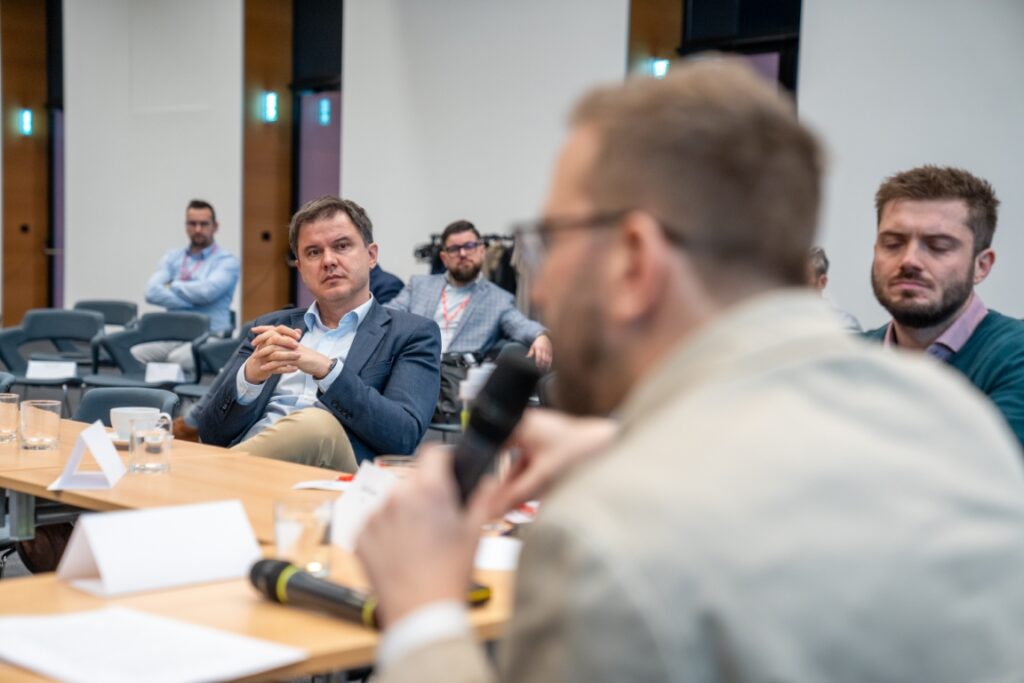SEVA is also actively involved in shaping the debate on sustainable transport at international level. We joined the international workshop “Electrifying Europe’s Buses: Strategies for Zero Emission Public Transport”, which took place on 21 November 2024 at the CZECHBUS fair. The aim of the event, organised by EIT Urban Mobility, was to share experiences and discuss strategies for the electrification of bus transport in Central and Eastern Europe, specifically in the V4 countries.
During his presentation, SEVA Director Patrik Križanský presented our experience with the implementation of battery electric buses and the construction of charging infrastructure. One of the key points of the discussion was to highlight the importance of cooperation and knowledge exchange between experts, as well as the complexity of the transition to zero-emission transport.

As part of the event, SEVA also presented the updated Charging Infrastructure Manual for Battery Electric Buses, which offers concrete recommendations for planning and implementing charging technologies ready for long-term use.
Workshops and discussion panels revealed important insights on decarbonising public transport in Central and Eastern Europe. In addition to SEVA, the event was attended by key players in the sector, such as the Ministry of the Environment of the Czech Republic, ARRIVA Slovakia, MAN Truck & Bus, Flix, and technology companies such as ČEZ, Ekoenergetyka and Kempower. These actors brought diverse perspectives on the current strategies and needs of the sector. One of the main ideas was to highlight the importance of platforms for the exchange of experiences, which are essential for an effective transition to zero-emission transport.
The Slovak Association for Electromobility promotes the benefits of sustainable transport not only in Slovakia, but also contributes to the achievement of the global sustainable transport goals. Through its active participation in similar events, it emphasises the need for intensive cross-sectoral cooperation, which is crucial for a successful transition to zero-emission technologies in public transport.